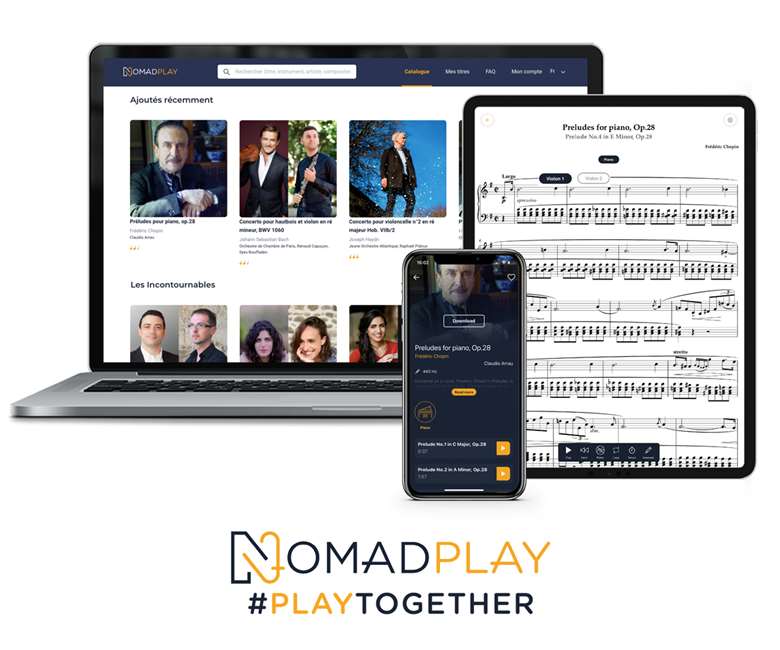Naxos joins NomadPlay’s digital catalogue
Wednesday, January 20, 2021
Musicians of all standards can now perform alongside Naxos artists

Register now to continue reading
Thanks for exploring the Gramophone website. Sign up for a free account today to enjoy the following benefits:
- Free access to 3 subscriber-only articles per month
- Unlimited access to our news, podcasts and awards pages
- Free weekly email newsletter







